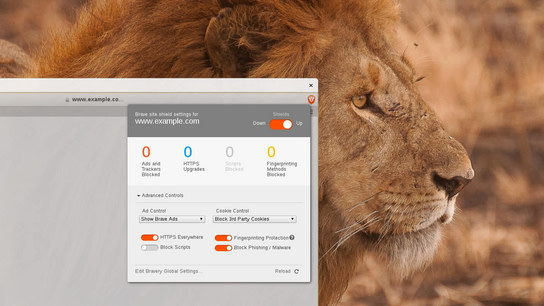There isn’t all that much innovation in the Brave browser itself except for the Brave Payments system that rewards the websites users are willing to pay for. I believe Brave Software made a big mistake when they choose to build a browser rather than an extension, and here’s why.
Wouldn’t it be easier to convince potential customers to install an extension to supplement the web browser they already like than convincing them to change all their habits, and uproot and move to a new web browser?
The core of Brave Payments is already implemented as a Chromium browser extension (WebExtension), and could have been made compatible with existing browsers including Microsoft Edge, Firefox, Google Chrome, Opera, and others rather than making it its own thing.
The Brave Browser isn’t a good browser. It’s still in beta, but Brave seems to be focusing on creating a minimal viable product without an identity of its own. There isn’t anything special about their browser, and it lacks essential features like a history manager while the features it has are still missing years of development and polishing. Brave uses a weak fraud protection service and yet they recommend their customers go to the shadier corners of the web, cough up their credit cards, and purchase Bitcoins. Bitcoin exchanges have a long and established history of fraud and there are many bad actors in this market.
It will be very difficult for Brave to attract paying customers with a subpar web browser and a difficult to understand payment model where customers pay for something they’re used to get for free. I haven’t seen any marketing material nor anything special about the Brave browser that I believe would appeal to a mass audience.
I was curious about Brave and I’ve contributed funds into their payment scheme and used their browser as my daily driver. However, I miss Firefox. Brave is full of bugs and I don’t feel at home. The experience will, of course, be different to different people, but I believe many will already have a preference in web browsers and will want their browsers to work in the ways they’re used to.
Competition on the horizon
Brave Payments isn’t the only micro-payment service aiming to block ads and ask for voluntary contributions from fans. The world’s most popular browser extension, AdBlock Plus, is partnering with the micro-donation service Flattr on Flattr+. Flattr+ will be a system built-in to the AdBlock Plus extension. It will keep a ledger of the websites users visit the most and give websites a share of users’ contributions.
Update (): Flattr+ has launched and has also rebranded to just ‘Flattr’.
AdBlock Plus is a powerful brand, and as soon as Flattr+ launches we can expect to see a media storm of coverage with publishers small and large chip in with their opinions. Some users will get curious and turn on the service. With a little luck and willingness to accept the funds given to them from what the publishing industry considers to be their worst enemy, Brave Payments could be a solution to the online publishing industry’s dwindling advertisement revenue.
I fully expect Flattr+ to be way more popular than Brave. Not only because they’ll rely on traditional payment systems rather than Bitcoin, and not only because they’ll receive huge exposure through AdBlock Plus, but because their customers get to keep the web browsers they already know and trust. Flattr+ will be easier and far less painful to adopt than Brave.
It’s not too late for Brave to port what they’ve and turns it into a browser extension. However, I doubt we’ll see a Brave extension for other web browsers. Who in their right mind would put their business at the mercy of a competing company rather than strive to take control of the whole ecosystem?
